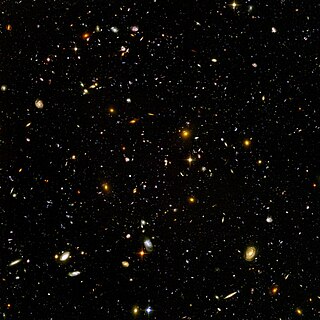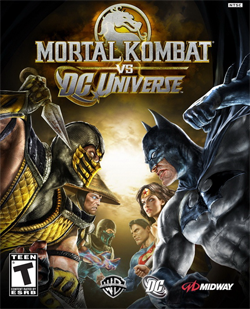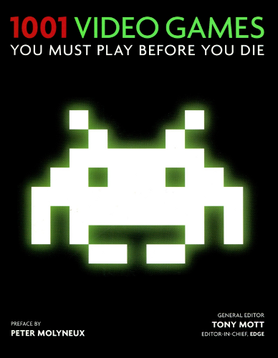Zeno's paradoxes are a series of philosophical arguments presented by the ancient Greek philosopher Zeno of Elea, primarily known through the works of Plato, Aristotle, and later commentators like Simplicius of Cilicia. Zeno devised these paradoxes to support his teacher Parmenides's philosophy of monism, which posits that despite our sensory experiences, reality is singular and unchanging. The paradoxes famously challenge the notions of plurality, motion, space, and time by suggesting they lead to logical contradictions.

The world is the totality of entities, the whole of reality, or everything that exists. The nature of the world has been conceptualized differently in different fields. Some conceptions see the world as unique, while others talk of a "plurality of worlds". Some treat the world as one simple object, while others analyze the world as a complex made up of parts.

The cosmos is an alternative name for the universe or its nature or order. Usage of the word cosmos implies viewing the universe as a complex and orderly system or entity.
In philosophy, a noumenon is knowledge posited as an object that exists independently of human sense. The term noumenon is generally used in contrast with, or in relation to, the term phenomenon, which refers to any object of the senses. Immanuel Kant first developed the notion of the noumenon as part of his transcendental idealism, suggesting that while we know the noumenal world to exist because human sensibility is merely receptive, it is not itself sensible and must therefore remain otherwise unknowable to us. In Kantian philosophy, the noumenon is often associated with the unknowable "thing-in-itself". However, the nature of the relationship between the two is not made explicit in Kant's work, and remains a subject of debate among Kant scholars as a result.

In classical theistic and monotheistic theology, the doctrine of divine simplicity says that God is simple . God exists as one unified entity, with no distinct attributes; God's existence is identical to God's essence.
The Form of the Good, or more literally translated "the Idea of the Good", is a concept in the philosophy of Plato. In Plato's Theory of Forms, in which Forms are defined as perfect, eternal, and changeless concepts existing outside space and time, the Form of the Good is the mysterious highest Form and the source of all the other Forms. It is a Platonic ideal.

Subjective idealism, or empirical idealism or immaterialism, is a form of philosophical monism that holds that only minds and mental contents exist. It entails and is generally identified or associated with immaterialism, the doctrine that material things do not exist. Subjective idealism rejects dualism, neutral monism, and materialism; it is the contrary of eliminative materialism, the doctrine that all or some classes of mental phenomena do not exist, but are sheer illusions.

Natural philosophy or philosophy of nature is the philosophical study of physics, that is, nature and the physical universe. It was dominant before the development of modern science.
The existence of God is a subject of debate in the philosophy of religion and theology. A wide variety of arguments for and against the existence of God can be categorized as logical, empirical, metaphysical, subjective or scientific. In philosophical terms, the question of the existence of God involves the disciplines of epistemology and ontology and the theory of value.

Platonism is the philosophy of Plato and philosophical systems closely derived from it, though contemporary Platonists do not necessarily accept all doctrines of Plato. Platonism has had a profound effect on Western thought. At the most fundamental level, Platonism affirms the existence of abstract objects, which are asserted to exist in a third realm distinct from both the sensible external world and from the internal world of consciousness, and is the opposite of nominalism. This can apply to properties, types, propositions, meanings, numbers, sets, truth values, and so on. Philosophers who affirm the existence of abstract objects are sometimes called Platonists; those who deny their existence are sometimes called nominalists. The terms "Platonism" and "nominalism" also have established senses in the history of philosophy. They denote positions that have little to do with the modern notion of an abstract object.
Metaphysics is the branch of philosophy that investigates principles of reality transcending those of any particular science. Cosmology and ontology are traditional branches of metaphysics. It is concerned with explaining the fundamental nature of being and the world. Someone who studies metaphysics can be called either a "metaphysician" or a "metaphysicist".

No Age is an American noise rock duo consisting of guitarist Randy Randall and drummer/vocalist Dean Allen Spunt. The band is based in Los Angeles, California, and was signed to Sub Pop records from 2008 to 2013. No Age's fourth studio album, Snares Like a Haircut, was released by Drag City on January 26, 2018. Drag City also released Goons Be Gone, their fifth studio album, on June 5, 2020, and their sixth studio album People Helping People in 2022.

The type–token distinction is the difference between a class (type) of objects and the individual instances (tokens) of that class. Since each type may be instantiated by multiple tokens, there are generally more tokens than types of an object. For example, the sentence "A rose is a rose is a rose" contains three word types: three word tokens of the type a, two word tokens of the type is, and three word tokens of the type rose. The distinction is important in disciplines such as logic, linguistics, metalogic, typography, and computer programming.

Mortal Kombat vs. DC Universe is a 2008 fighting video game developed and published by Midway Games for the PlayStation 3 and Xbox 360. The game is a crossover between Mortal Kombat and the DC Universe, and is the eighth main installment in the Mortal Kombat franchise. The game was released on November 16, 2008.

Crack the Skye is the fourth studio album by American heavy metal band Mastodon, released on March 24, 2009, through Reprise, Sire and Relapse Records. The album debuted at number 11 on the Billboard 200, selling 41,000 copies in its first week. In Australia, the album debuted at number 19. It had sold 200,000 copies in the US as of September 2010, making it one of their highest-selling albums to date.

1001 Video Games You Must Play Before You Die is a video game reference book first published in October 2010. It consists of a list of video games released between 1970 and 2013, arranged chronologically by release date. Each entry in the list is accompanied by a short essay written by a video game critic, with some entries accompanied by screen shots. It was edited by Tony Mott, long-time editor of Edge magazine. The book's preface was written by video game designer Peter Molyneux.

Injustice: Gods Among Us is a 2013 fighting video game. It is the first installment in the Injustice franchise based upon the fictional universe of DC Comics. The game was developed by NetherRealm Studios and published by Warner Bros. Interactive Entertainment for the PlayStation 3, Wii U, and Xbox 360. It was released in April 2013 in North America, Europe, and Australia, and June 2013 in Japan. An expanded version of the game, titled Injustice: Gods Among Us – Ultimate Edition, was released in November 2013 for the PlayStation 3, PlayStation 4, PlayStation Vita, Windows, and Xbox 360. A free-to-play mobile app based on Injustice was also released for iOS and Android devices, which was then ported to arcade machines by Raw Thrills in the fall of 2017, months after the sequel's release. A prequel comic book series of the same name, written by Tom Taylor, was released beginning in January 2013.

"Early Roman Kings" is a blues song written and performed by Bob Dylan that appears as the seventh track on his 2012 studio album Tempest. It was also released as the album's lead single through Columbia Records on August 7, 2012. Like much of Dylan's 21st-century output, he produced the song himself using the pseudonym Jack Frost.
Philosophy of motion is a branch of philosophy concerned with exploring questions on the existence and nature of motion. The central questions of this study concern the epistemology and ontology of motion, whether motion exists as we perceive it, what is it, and, if it exists, how does it occur. The philosophy of motion is important in the study of theories of change in natural systems and is closely connected to studies of space and time in philosophy.

Katherine J. Mack is a theoretical cosmologist who holds the Hawking Chair in Cosmology and Science Communication at the Perimeter Institute. Her academic research investigates dark matter, vacuum decay, and the Epoch of Reionization. Mack is also a popular science communicator who participates in social media and regularly writes for Scientific American, Slate, Sky & Telescope, Time, and Cosmos.













